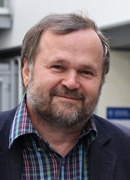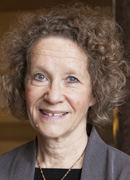
Antonella Delle Fave, MD
University of Milan, Italy
Antonella Delle Fave, MD specialized in Clinical Psychology, is professor of Psychology at the Medical School, Università degli Studi di Milano, Italy. More
Antonella Delle Fave, MD specialized in Clinical Psychology, is professor of Psychology at the Medical School, Università degli Studi di Milano, Italy. Her research work is centered on the study of psychological indicators of well-being, daily experience fluctuation, and the process of psychological selection across cultures and among individuals experiencing conditions of diversity and adversity. She developed intervention projects in the domains of health and education. Together with international partners she launched and implemented the project “Eudaimonic and Hedonic Happiness Investigation”, aimed at identifying well-being components across cultures. She is currently conducting research and clinical studies aimed at integrating the bio-psycho-social perspective of Western medicine and the Indian traditional view of health and disease.She contributed to the development of positive psychology, as founding member and President of the International Positive Psychology Association (IPPA), the European Network of Positive Psychology (ENPP) and the Società Italiana di Psicologia Positiva (SIPP). Author of over 150 scientific articles and books, since 2010 she is Editor in Chief of the Journal of Happiness Studies.



